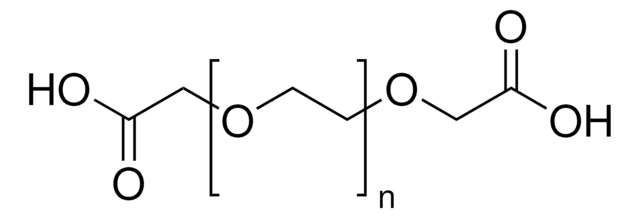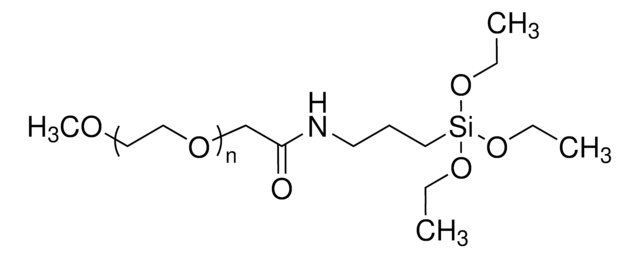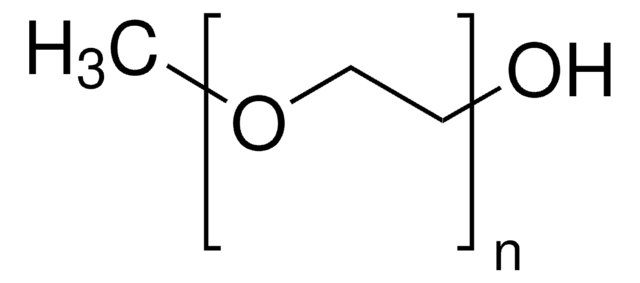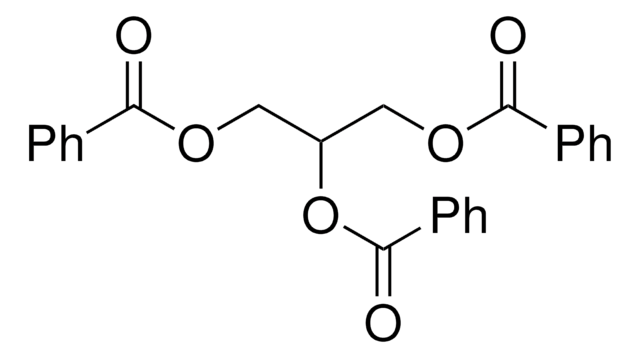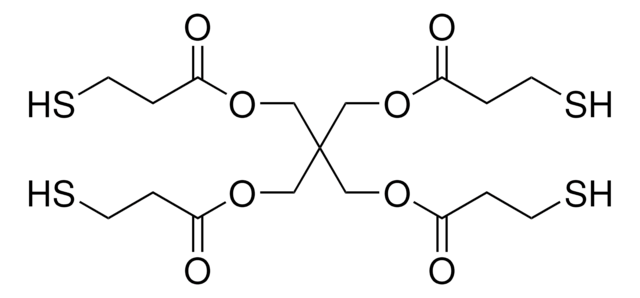450596
Poly(ethylene glycol) bis(2-ethylhexanoate)
average Mn ~650
Synonyme(s) :
PEG bis(2-ethylhexanoate)
About This Item
Produits recommandés
Poids mol.
average Mn ~650
Indice de réfraction
n20/D 1.453 (lit.)
Viscosité
50 cP(25 °C)(lit.)
Pf
−48 °C (lit.)
Solubilité
H2O: insoluble
hexane, toluene, ethanol, and acetone: soluble
Densité
1.02 g/mL at 25 °C (lit.)
Chaîne SMILES
OCCO.CCCCC(CC)C(O)=O
InChI
1S/C18H34O4/c1-5-9-11-15(7-3)17(19)21-13-14-22-18(20)16(8-4)12-10-6-2/h15-16H,5-14H2,1-4H3
Clé InChI
XCQFTFZCTGZCNP-UHFFFAOYSA-N
Description générale
Application
Caractéristiques et avantages
Code de la classe de stockage
10 - Combustible liquids
Classe de danger pour l'eau (WGK)
WGK 3
Point d'éclair (°F)
Not applicable
Point d'éclair (°C)
Not applicable
Équipement de protection individuelle
Eyeshields, Gloves
Faites votre choix parmi les versions les plus récentes :
Déjà en possession de ce produit ?
Retrouvez la documentation relative aux produits que vous avez récemment achetés dans la Bibliothèque de documents.
Les clients ont également consulté
Notre équipe de scientifiques dispose d'une expérience dans tous les secteurs de la recherche, notamment en sciences de la vie, science des matériaux, synthèse chimique, chromatographie, analyse et dans de nombreux autres domaines..
Contacter notre Service technique
